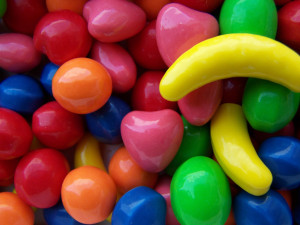Curriculum

~GENERAL CURRICULUM~
The children are introduced to a balanced program of interaction with friends in both teacher-directed and child-directed experiences. The daily schedule includes: free choice of time spent in the learning centers, group times, creative movement, music, storytelling, and dramatization. Field trips are also part of the children’s experiences.
The program we pursue is geared toward helping children develop habits of observation, questioning and listening. It gives each child an awareness of one’s own feelings and of one’s right to express those feelings, sometimes channeling them into more appropriate means of expression. The children learn they are free to make choices as long as they stay within the limits of consideration for other people and things. Children are treasured for their uniqueness and individuality. Such an open-minded program prepares children to utilize their intellectual and creative abilities for future learning tasks.
Our program is child-centered and based upon the belief that play is the best way for children to learn. Our approach is individualized to meet each child’s needs and interests. Our curriculum is planned on a weekly basis for each group and is appropriate for the age span of the children in the group. Each classroom is organized with centers for creative art, literature, science and pre-math, dramatic play, and cognitive and small motor development. Our curriculum is integrated throughout the classroom. Our themes are introduced through stories and carried through our art projects, games, songs, and play. The environment is planned to stimulate imagination and creativity, socialization, exploration and discovery, while challenging the use of muscles important to developing bodies.
~LEARNING THROUGH PLAY~
Children learn through play that is why we plan all our indoor and outdoor time to encourage this activity. Through play children reenact experiences, try out different roles, express ideas, develop vocabulary, process information, widen their world view and relate to each other.
The variety of experiences we provide include: opportunities for creative self-expression through the media of dance, musical rhythms, and art; development of manipulative skills and motor coordination through carpentry, puzzles, blocks, bikes and climbing equipment; the increase of knowledge through excursions, cooking and science activities; the development of concepts through exposure to materials which stimulate basic awareness; growth of language skills through stories, songs, and dramatic play; and relaxation through water play and other quiet activities.
Here are some of the skills your child acquires while playing in the learning centers in our classrooms:
Language Arts (books and flannel boards)
Ø Increases vocabulary growth
Ø Develops vocabulary and speech development
Ø Develops listening skills
Ø Develops reading readiness skills
Ø Develops pre-writing skills
Ø Develops oral language skills
Ø Encourages discussion of concepts
Ø Encourages an interest in, and respect for, books
Ø Develops an appreciation of good literature
Ø Develops imagination
Ø Increases attention span
Ø Opportunity for quiet time
Science
Ø Develops observation and discrimination skills
Ø Develops natural curiosity of living things
Ø Develops respect for the environment
Ø Opportunity to observe nature and animals
Ø Encourages a child’s curiosity
Blocks and Building Materials
Ø Provides practice with social skills
Ø Offers creative construction
Ø Develops gross and fine motor skills
Ø Develops hand-eye coordination and muscle coordination
Ø Teaches mathematical concepts (shape, size, balance, counting)
Ø Increases creativity and decision-making skills
Ø Stimulates imagination
Ø Develops visual discrimination skills
Ø Provides an opportunity for role play
Ø Increases communication skills and oral vocabulary
Housekeeping and Dramatic Play
Ø Fosters imaginative play
Ø Provides an opportunity to act out life experiences
Ø Increases social development and communication skills
Ø Develops small and large muscle coordination
Ø Develops self awareness
Ø Develops visual discrimination skills
Ø Develops small and large muscle skills
Ø Develops color concepts
Ø Provides a release of positive and negative feelings
Ø Provides an emotional outlet
Ø Develops reading readiness skills
Ø Develops pre-writing skills
Ø Encourages an appreciation for the arts
Sand and Water Play
Ø Develops sensory awareness
Ø Develops concepts involving space, measurement, volume
Ø Increases fine and gross motor skills
Ø Provides opportunities for problem solving and creative thinking
Ø Encourages children to think, reason, question and experiment
Table Toys/Manipulatives (puzzles, beads, pegs)
Ø Develops small muscle coordination and development
Ø Develops hand-eye coordination
Ø Increases social development and communication skills
Ø Fosters imagination
Ø Teaches mathematical concepts (shapes, sizes, and counting)
Ø Teaches colors and space relationships
Ø Provides opportunities for problem solving
Art (play dough, finger paint, cutting, gluing, coloring)
Ø Develops small muscle manipulation
Ø Provides sensory experience
Ø Opportunity for self expression
Ø Provides experience with color, shape, and texture
Ø Tensional outlet
Music/Dance/Singing/Instruments
Ø Provides awareness of different sounds and rhythms
Ø Develops appreciation of songs
Ø Increases vocabulary and speech development
Ø Increases body awareness
Ø Develops large muscle control
Outdoor Play (Climbing Equipment, Sandbox, Tricycles)
Ø Develops large muscle coordination and balance
Ø Opportunity for solitary, parallel or cooperative play
Ø Increases social development and communication skills
Ø Provides opportunities for sharing and social growth
Ø Provides opportunities for role play
Ø Fosters safety awareness















